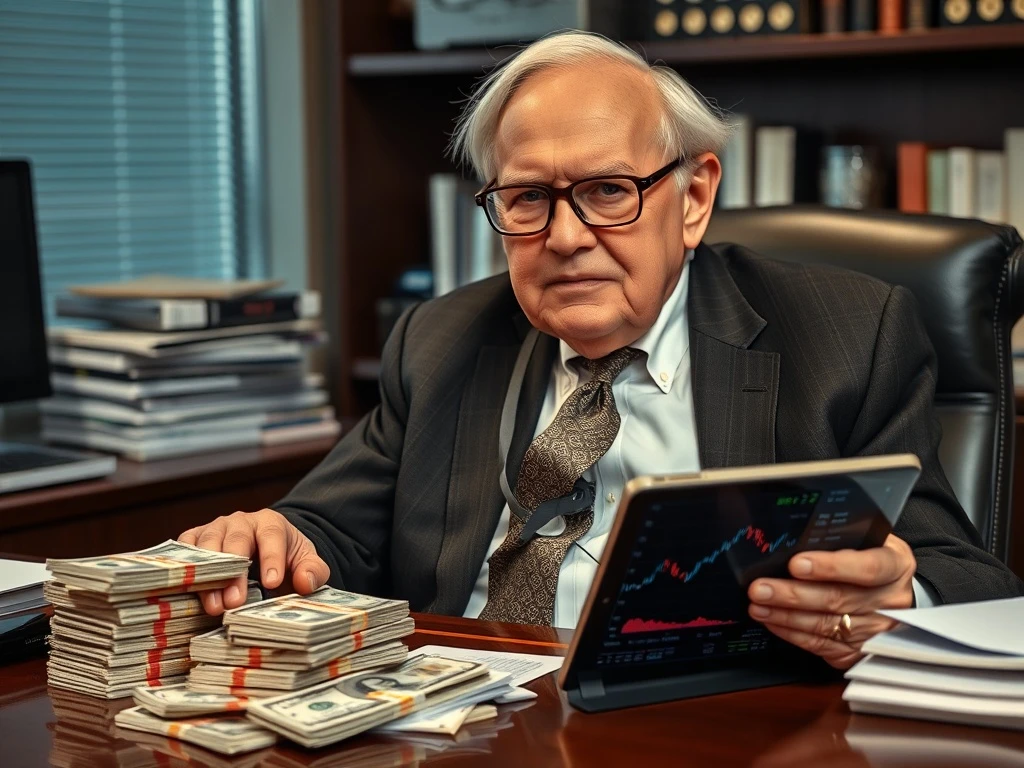Warren Buffett’s massive $344 billion cash position at Berkshire Hathaway sends shockwaves through financial markets, creating crucial implications for both traditional equities and Bitcoin investors seeking protection in uncertain times.
Record Warren Buffett Cash Holdings Signal Market Caution
Berkshire Hathaway now holds an unprecedented $344 billion in cash reserves. This amount actually exceeds the company’s entire equity portfolio of $267.9 billion. The massive liquidity buildup represents Buffett’s strategic response to current market conditions. Historically, such cash accumulations have preceded major market corrections. Buffett famously deployed cash during the 2000 dot-com bubble and 2008 financial crisis. His current position suggests similar concerns about today’s market valuations.
Historical Context of Buffett’s Cash Strategy
Buffett’s approach to cash management follows consistent patterns throughout market cycles. During the 2008 crisis, his $26 billion cash reserve enabled strategic acquisitions. He secured stakes in Goldman Sachs and General Electric at discounted prices. These moves generated substantial returns when markets recovered. The current cash position represents 50.7% of shareholders’ equity. This percentage indicates extreme caution about available investment opportunities. The absence of stock buybacks or new investments reinforces this defensive stance.
Equity Market Implications
Buffett’s war chest carries significant implications for stock investors. The Nasdaq Composite currently trades at 176% of U.S. M2 money supply. It also represents 129% of GDP—levels not seen since the dot-com era. These metrics suggest potential overvaluation concerns. Berkshire’s treasury investments emphasize capital preservation over growth. The company prioritizes risk-free returns through U.S. Treasury bills. This strategy contrasts sharply with speculative market behavior. Investors should consider Buffett’s position as a market barometer.
Bitcoin’s Complex Relationship with Liquidity
Bitcoin faces contrasting dynamics in this high-liquidity environment. The cryptocurrency shows a 52-week correlation of 0.73 to the Nasdaq. This correlation suggests potential synchronized declines during market corrections. However, Bitcoin has historically benefited from liquidity expansions. U.S. M2 money supply grew at a 4.8% year-over-year rate in July 2025. Global M2 has led Bitcoin price movements by approximately 12 weeks historically. Central bank policies continue influencing cryptocurrency valuations significantly.
Comparative Investment Philosophies
Buffett’s strategy fundamentally differs from Bitcoin’s investment thesis. The billionaire investor emphasizes intrinsic value and cash flow generation. He prefers businesses with durable competitive advantages. Bitcoin relies primarily on monetary expansion and adoption trends. Berkshire’s treasury investments provide risk-free returns during uncertainty. Bitcoin offers potential high returns but carries substantial volatility risks. Institutional adoption through ETFs has changed Bitcoin’s investment profile. However, its lack of cash flows remains a fundamental difference from traditional equities.
Strategic Considerations for Investors
Investors face critical decisions amid these market signals. Buffett’s cash position serves as a cautionary indicator for equity markets. It suggests potential overvaluation and limited margin of safety. Bitcoin presents alternative opportunities during monetary expansion. However, its speculative nature requires careful risk management. Diversification across asset classes remains crucial. Investors should balance growth opportunities with capital preservation. Monitoring central bank policies provides additional market insights.
Leadership Transition and Future Strategy
Berkshire Hathaway’s approaching leadership change adds another layer of consideration. Greg Abel will eventually succeed Buffett as CEO. The company’s liquidity strategy will likely maintain Buffett’s philosophical foundations. Patience and discipline will probably continue guiding investment decisions. This approach contrasts with Bitcoin’s more dynamic market behavior. The transition may bring subtle shifts in investment approach. However, core principles of value investing should persist.
FAQs
Why is Warren Buffett holding so much cash?
Buffett maintains large cash reserves during periods of high market valuations to preserve capital for future investment opportunities when prices become more attractive.
How does Buffett’s cash position affect Bitcoin?
Buffett’s caution signals potential market uncertainty, which could impact Bitcoin’s correlation with traditional markets despite its different fundamental drivers.
What historical precedents exist for this strategy?
Buffett employed similar cash accumulation strategies before the 2000 dot-com crash and 2008 financial crisis, successfully deploying capital during market downturns.
Should investors follow Buffett’s cash example?
While Buffett’s approach warrants consideration, individual investors should align strategies with personal risk tolerance, investment goals, and time horizons.
How does monetary policy affect these dynamics?
Central bank policies influence both Buffett’s treasury investments and Bitcoin’s valuation, creating complex interrelationships between traditional and digital assets.
What signals should investors watch for changes?
Key indicators include market valuation metrics, central bank policy shifts, Berkshire’s investment activity, and Bitcoin’s correlation with traditional markets.


